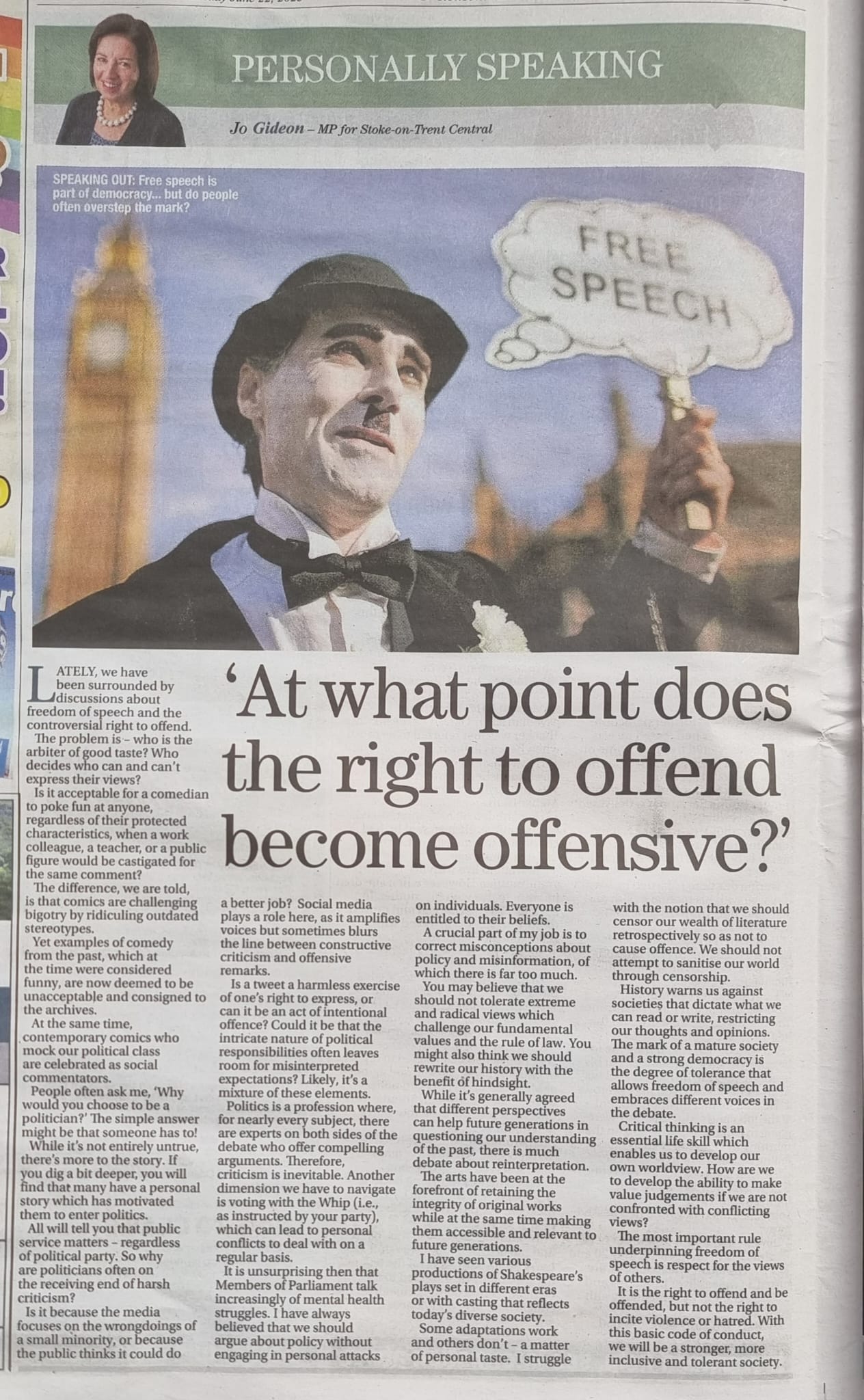Lately, we have been surrounded by discussions about freedom of speech and the controversial right to offend. The problem is – who is the arbiter of good taste? Who decides who can and can’t express their views? Is it acceptable for a comedian to poke fun at anyone, regardless of their protected characteristics, when a work colleague, a teacher, or a public figure would be castigated for the same comment?
The difference, we are told, is that comics are challenging bigotry by ridiculing outdated stereotypes. Yet examples of comedy from the past, which at the time were considered funny, are now deemed to be unacceptable and consigned to the archives. At the same time, contemporary comics who mock our political class are celebrated as social commentators.
People often ask me, “Why would you choose to be a politician?” The simple answer might be that someone has to! While it’s not entirely untrue, there’s more to the story. If you dig a bit deeper, you will find that many have a personal story which has motivated them to enter politics. All will tell you that public service matters – regardless of political party. So why politicians often on the receiving end of harsh criticism? Is it because the media focuses on the wrongdoings of a small minority, or because the public thinks it could do a better job? Social media plays a role here, as it amplifies voices but sometimes blurs the line between constructive criticism and offensive remarks. Is a tweet a harmless exercise of one's right to express, or can it be an act of intentional offence? Could it be that the intricate nature of political responsibilities often leaves room for misinterpreted expectations? Likely, it‘s a mixture of these elements.
Politics is a profession where, for nearly every subject, there are experts on both sides of the debate who offer compelling arguments. Therefore, criticism is inevitable. Another dimension we have to navigate is voting with the Whip (i.e., as instructed by your Party), which can lead to personal conflicts to deal with on a regular basis. It is unsurprising then that Members of Parliament talk increasingly of mental health struggles.
I have always believed that we should argue about policy without engaging in personal attacks on individuals. Everyone is entitled to their beliefs. A crucial part of my job is to correct misconceptions about policy and misinformation, of which there is far too much.
You may believe that we should not tolerate extreme and radical views which challenge our fundamental values and the rule of law. You might also think we should rewrite our history with the benefit of hindsight. While it’s generally agreed that different perspectives can help future generations in questioning our understanding of the past, there is much debate about reinterpretation.
The Arts have been at the forefront of retaining the integrity of original works while at the same time making them accessible and relevant to future generations. I have seen various productions of Shakespeare’s plays set in different eras or with casting that reflects today’s diverse society. Some adaptations work and others don’t – a matter of personal taste. I struggle with the notion that we should censor our wealth of literature retrospectively so as not to cause offence. We should not attempt to sanitise our world through censorship. History warns us against societies that dictate what we can read or write, restricting our thoughts and opinions. The mark of a mature society and a strong democracy is the degree of tolerance that allows freedom of speech and embraces different voices in the debate.
Critical thinking is an essential life skill which enables us to develop our own worldview. How are we to develop the ability to make value judgements if we are not confronted with conflicting views? The most important rule underpinning freedom of speech is respect for the views of others. It is the right to offend and be offended, but not the right to incite violence or hatred. With this basic code of conduct, we will be a stronger, more inclusive and tolerant society.

